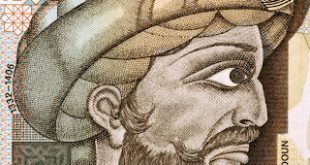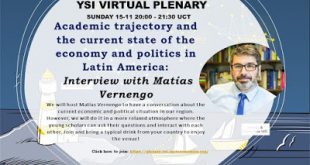New working paper with Bill McColloch, published by the Centro di Ricerche e Documentazione "Piero Sraffa." From the abstract:The rise of the regulatory state during the Gilded Age was closely associated with the development of Institutionalist ideas in American academia. In their analysis of the emergent regulatory environment, Institutionalists like John Commons operated with a fundamentally marginalist theory of value and distribution. This engagement is a central explanation for the...
Read More »Leo Panitch and the Lessons from Socialist Defeats
A few weeks ago I bought the little book on top (a new edition of a previously published one, I think). Sadly not long after I learnt of Leo Panitch's untimely death (obit by Chibber here). The book tries to account for three recent defeats of the democratic socialist left in recent times, even though it was written before the ultimate defeat of Bernie Sanders by the establishment candidate earlier this year. He and his co-authors discuss the rise of democratic socialism, and the...
Read More »The worldly philosophers go to Washington: Episode 3, Farmer and Merchants
[embedded content]
Read More »Economics without Gaps: on Ibn Khaldun and non-Western traditions in the history of ideas
Ibn Khaldun, Arab scholarA piece* from a few years ago, has again become somewhat popular and it has been making the rounds. It suggests that the Arab scholar Ibn Khaldun developed the ideas of classical political economics in the late XIV century, about half a millennia before Adam Smith, often seen as the father of classical economics, and of modern economics. Some would suggest that Khaldun was the real father of economics (or stepfather in the first essay on top). To a great extent, the...
Read More »Heterodox Challenges in Economics by Sergio Cesaratto
The English translation of Sergio Cesaratto's book has been published. A Free chapter is available at the Springer website here.From the promotion pamphlet:This book discloses the economic foundations of European fiscal and monetary policies by introducing readers to an array of alternative approaches in economics. It presents various heterodox theories put forward by classical economists, Marx, Sraffa and Keynes, as a coherent challenge to neo-classical theory. The book underscores and...
Read More »Poor Richard Goes to London: The Economic Ideas of Benjamin Franklin
[embedded content]Another episode of my podcast on The Worldly Philosophers Go to Washington: From Alexander Hamilton to Janet Yellen. The ideas of early classical political economists and their influence in America are analyzed in this episode. The role of Sir William Petty’s ideas in the development of Benjamin Franklin’s early policy proposals is discussed. It is noted how Franklin had a firm grasp of the main economic theories of his time, even before some of these ideas were fully...
Read More »From Regulation to Deregulation and (Perhaps) Back (Talk in Portuguese)
[embedded content]My talk at the Federal University of Rio de Janeiro yesterday, on the rise, fall, and perhaps rise again of the regulatory state in the US, and its relation to ideas, particularly institutionalist, and Chicago School views, as expressed by John R. Commons and George Stigler. In Portuguese, of course.
Read More »Diego Maradona (1960-2020): Some Bittersweet Reflections
By Thomas Palley (guest blogger)Maradona was more than just an extraordinary footballer. He was also a complicated social icon. That further distinguishes him from other footballers, though Pele also has some of that… and it is great to see young footballers like Marcus Rashford taking up that mantle.He was both rewarded by and terribly exploited by the system. The system treated him like a “race horse”. They wanted him to play at all cost and pumped him with drugs. They did not care about...
Read More »Capitalism Alone Against Itself: Liberal Democratic versus Political Capitalism
I finished Branko Milanovic's thought provoking Capitalism Alone this summer. But I haven't had much time to write on the blog, as you might have noticed. This is certainly not a review, and I would definitely suggest that you go and buy the book as soon as you can and read it. It is a serious discussion of the future of capitalism, that word that, as Heilbroner often reminded us, was at the center of the discipline, but seldom discussed openly by economists. He cited, if memory doesn't fail...
Read More »The Portrait of the Heterodox Economist as Young Man
Tomorrow at 3pm (EST) a frank and informal talk about heterodox economics, my personal trajectory in the profession and discussions about political economy in Latin America with some young scholars from the YSI initiative. Join here.
Read More » Naked Keynesianism
Naked Keynesianism







